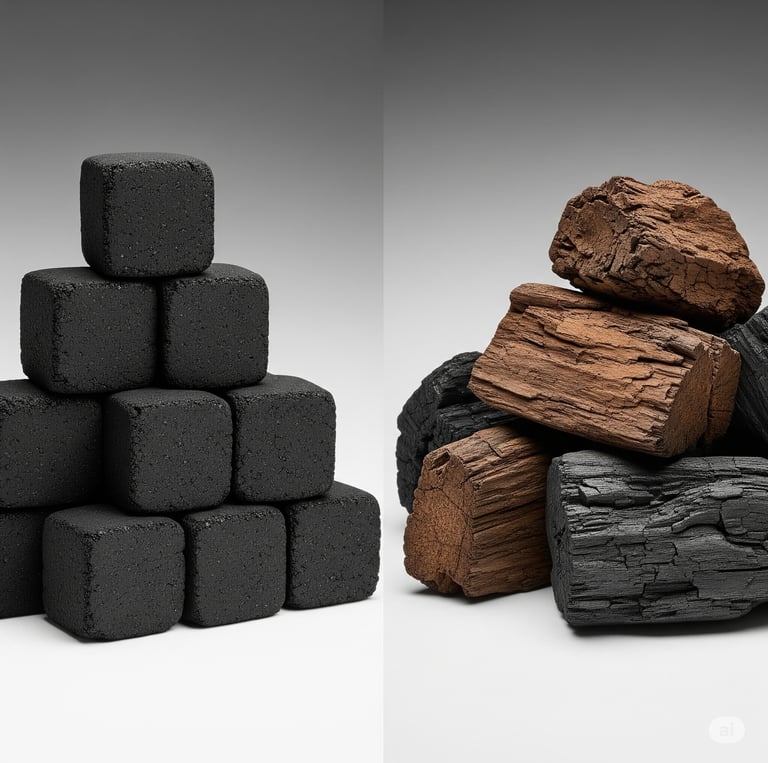Coconut Briquettes vs. Lump Charcoal: A Technical Comparison for Importers
Choosing the right charcoal is key for importers. Our technical analysis compares coconut briquettes and lump charcoal on burn time, heat consistency, ash content, and sustainability.
HOOKAH/SHIHABBQ
Tropicoal Team
7/15/20252 min read


For charcoal importers, the product portfolio is a strategic choice. Two of the most popular products in the premium market are coconut shell briquettes and traditional lump charcoal. While both are superior to standard briquettes, they serve different market needs and have vastly different technical specifications. This analysis provides a head-to-head comparison to help you make an informed sourcing decision.
1. Raw Material & Sustainability
Lump Charcoal: Made from hardwood logs and pieces of wood. Its production contributes directly to deforestation unless sourced from sustainably managed forests, which can be difficult to verify and costly.
Coconut Briquettes: Made from a byproduct—carbonized shells of harvested coconuts. This is a 100% recycled product that turns agricultural waste into a high-value commodity. For environmentally-conscious markets (like the EU and North America), this is a powerful selling point.
2. Performance & Consistency
Lump Charcoal: Burns very hot, which is great for searing. However, the pieces are irregular in size and density, leading to inconsistent heat and unpredictable burn times. It can spark and pop.
Coconut Briquettes: Engineered for consistency. Their uniform shape and density ensure a predictable, stable, and long-lasting heat output. This makes them ideal for both long cooking sessions (BBQ) and steady heat applications (Shisha).
3. Burn Time & Efficiency
Lump Charcoal: Burns faster due to lower density and irregular shapes. Users often need to replenish it during a long cooking session.
Coconut Briquettes: Their high density allows them to burn for significantly longer periods—often 2-3 times longer than lump charcoal. This offers greater value and efficiency to the end-user.
4. Ash Production
Lump Charcoal: Produces a moderate amount of ash.
Coconut Briquettes: Known for their incredibly low ash content (typically under 3-5%). This means less cleanup for the consumer and a cleaner burn, which is critical for applications like indoor grilling or shisha.
Conclusion for Importers Both products have their place. Lump charcoal appeals to the BBQ purist who wants intense, searing heat. However, coconut charcoal briquettes appeal to a broader, more modern market that values consistency, efficiency, sustainability, and versatility (suitable for both BBQ and Shisha).
From a business perspective, the sustainability story and consistent performance of coconut briquettes make them easier to market and allow for more stable quality control. They represent the future of the premium charcoal market.
Tropicoal.id provides fully-vetted, high-specification coconut charcoal briquettes, offering our import partners a reliable product with a compelling story for today's conscious consumer.


